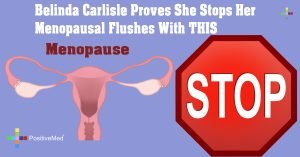
An advisory panel for the Food and Drug Administration (FDA) has declared that phenylephrine, a common ingredient in over-the-counter decongestants, is ineffective for nasal decongestion when taken orally. This revelation has significant implications for individuals seeking relief from nasal congestion due to the common cold and other conditions. In this article, we explore the FDA’s findings and provide alternatives for managing nasal congestion and related symptoms.
Phenylephrine’s Ineffectiveness
The FDA advisory panel’s evaluation has raised questions about the effectiveness of phenylephrine in addressing nasal congestion. Key findings include:
- Oral Phenylephrine: The panel concluded that oral phenylephrine, found in various cold and sinus medications, does not effectively alleviate nasal congestion when taken at recommended doses.
- Safety Concerns: Increasing the dosage of phenylephrine is not recommended due to its potential to elevate blood pressure and pose health risks. Even at higher doses, the medication did not prove more effective than a placebo.
Alternatives for Nasal Congestion Relief
Given the ineffectiveness of oral phenylephrine, individuals seeking relief from nasal congestion have several alternatives:
- Supportive Care: Staying hydrated by drinking plenty of water can help thin mucus and ease congestion. A gentle sinus massage may also aid in sinus drainage.
- Over-the-Counter Allergy Medications: Allergy medications like Zyrtec and Claritin are effective at reducing runny noses and sinus congestion, making them suitable for addressing congestion related to viral infections.
- Nasal Sprays: Nasal sprays are proven to be effective in reducing nasal congestion. However, they may be more beneficial for seasonal allergy symptoms than for cold or flu-related congestion.
- Pseudoephedrine: Pseudoephedrine remains an effective agent for alleviating stuffy noses and sinus congestion.
- Steroid Nasal Spray: Glucocorticoid-based steroid nasal sprays are recommended by healthcare professionals for managing nasal congestion.
- Combination Medications: Some over-the-counter medications offer a combination of symptom relief, including cough suppressants, mucus thinners, and fever reducers.
The FDA’s declaration regarding the ineffectiveness of oral phenylephrine underscores the importance of choosing appropriate medications for nasal congestion. Patients are encouraged to explore alternative treatments, including supportive care, over-the-counter allergy medications, nasal sprays, pseudoephedrine, steroid nasal sprays, and combination medications. Effective symptom management remains essential for individuals seeking relief from nasal congestion associated with the common cold and similar conditions.





